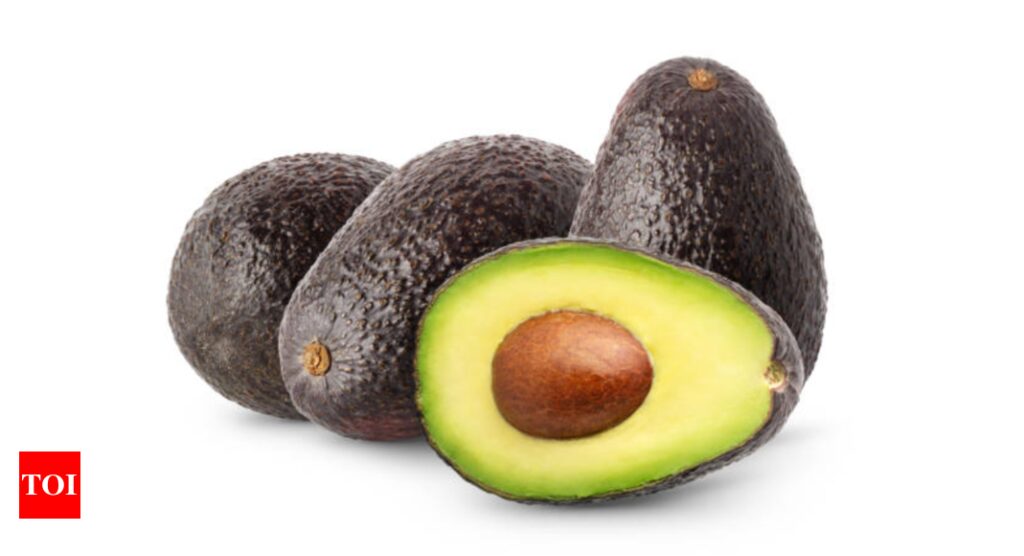The presence of this mineral in avocado is why Vitamin D gets activated in the body

Vitamin D is necessary for healthy bones and a healthy immune system, and it even helps with your mood, but what you may not know is that it has to go through a two-step activation process with the liver and kidneys to function. For this to happen, your body needs another active nutrient, which is magnesium; but where do you get magnesium from?
One of the other surprising sources of magnesium is avocados! Creamy, ripe, full of nutrients that your body requires-and, of course, magnesium, playing a key role in initiating vitamin D’s action.So, including avocados in your diet not only tastes good but also helps you get all these out from your vitamin D!
Magnesium in avocados
Magnesium is an essential mineral found in many plant-based foods, including avocados. A medium-sized avocado contains about 58 mg of magnesium, which contributes highly to the recommended daily intake (360-410 mg). Magnesium is involved in over 300 enzymatic processes in the body, including muscle and nerve function, blood sugar regulation, and energy production. One of its critical roles is assisting in the metabolism and activation of vitamin D, making it essential for maintaining healthy levels of this vitamin.
The role of magnesium in Vitamin D activation
Vitamin D is unique because it functions more like a hormone than a traditional vitamin. It is synthesized by the skin in response to sunlight and must be activated through a two-step process. In its initial form, vitamin D is inactive and needs to be converted into its biologically active form to perform its many functions in the body, such as promoting calcium absorption, maintaining bone health, and regulating immune function.
The first step of activation occurs in the liver, where vitamin D is converted into 25-hydroxyvitamin D [25(OH)D], the form usually measured to assess vitamin D levels. The second step happens in the kidneys, where 25(OH)D is converted into its active form, calcitriol (1,25-dihydroxyvitamin D). Both steps rely heavily on the presence of magnesium as a cofactor.
Magnesium acts as a critical regulator of this process by facilitating the activity of enzymes that are necessary for converting vitamin D into its active form. Without sufficient magnesium, these enzymes are less efficient, and vitamin D activation can be impaired, even if a person is getting enough sunlight or taking vitamin D supplements.
Why Vitamin D activation is important
Activated vitamin D enhances the calcification of all calcium that can be absorbed by the intestines to provide sufficient amounts in the blood to be deposited to the bones. Without activated vitamin D, the calcium amount may drop, which results in weak bones, increased chances of fractures, and osteoporosis, among other conditions.
Activated vitamin D keeps the immune system in check and prevents infections and inflammation.
The active form of vitamin D is calcitriol, which has a role in growth and differentiation, mainly of skin, muscle cells, and immune cells. Thus, lack of vitamin D would cause problems like slow healing of wounds, loss of hair, and fatigue.
Recent evidence suggests that vitamin D plays some role in mental health. Low active vitamin D has been associated with mood disorders, hence proper activation of the vitamin is very crucial.
How avocados support magnesium and Vitamin D interaction
Avocados provide a blend of nutrients that will contribute to the synergy of magnesium and vitamin D. Apart from providing natural sources of magnesium, avocados provide healthy fats, necessary for the assimilation of fat-soluble vitamins like vitamin D. So the fact that you eat avocados makes it possible for your body to assimilate vitamin D besides getting enough magnesium.
Discover the Health Benefits of the Rainbow Diet
It is a fat-soluble vitamin; hence, it needs dietary fats for proper absorption and, therefore, can contribute to the increase in absorption of vitamin D either from foods or supplements. Thus, avocados help both in increasing absorption as well as the activation of vitamin D.
As stated above, magnesium is also required for the activation of vitamin D. Food sources rich in magnesium should, therefore, be included in your diet to ensure that your body has all the necessary components for vitamin D to be converted into its active form, such as avocados, nuts, seeds, and leafy greens.
Other good sources of magnesium
Magnesium is found in a variety of plant-based and animal-based foods, making it accessible through a well-balanced diet. One of the richest sources is leafy green vegetables like spinach, which provide a significant amount of this essential mineral. Nuts and seeds, particularly almonds, pumpkin seeds, and sunflower seeds, are also high in magnesium.
Another great source of magnesium is whole grains, such as brown rice, quinoa, and oats,. Legumes like black beans, lentils, and chickpeas are also packed with magnesium.
Lastly, dark chocolate is a surprisingly good source of magnesium. Consuming a small portion of dark chocolate (with at least 70% cocoa content) can satisfy a sweet craving while also boosting your magnesium intake.








